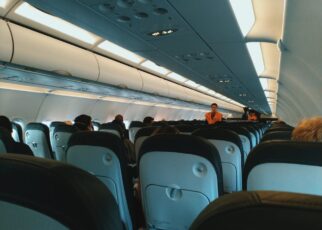The recent incident involving an air hostess found smuggling nearly a kilogram of gold concealed in her rectum is not just a sensational news story—it’s a wake-up call for the aviation industry. This disturbing discovery has led to a broader investigation by the Directorate of Revenue Intelligence (DRI), who suspect that more crew members may be involved in similar illicit activities. This situation underscores a significant lapse in both oversight and ethical training within airline operations, pointing to a critical need for systemic change.
Firstly, the sheer audacity of this smuggling method highlights the lengths to which individuals will go to exploit their positions for financial gain. Surabhi Khatun, a 26-year-old air hostess from Kolkata, and her senior colleague Sohail from Kannur, have both been arrested, casting a shadow over the integrity of the profession. These individuals’ actions not only tarnish the reputation of their airline but also erode public trust in the safety and security of air travel. When those entrusted with the safety of passengers are implicated in such severe criminal activity, it raises serious concerns about the vetting and monitoring processes currently in place.
The involvement of airline crew in smuggling operations is not an isolated incident. It indicates potential systemic issues that require immediate and thorough investigation. Airlines must implement more rigorous background checks during hiring processes and maintain continuous scrutiny of their employees’ conduct. This could involve random checks and a more collaborative approach with law enforcement agencies to preemptively address any suspicious behavior.
Furthermore, this scandal points to the necessity for enhanced training programs focused on ethics and the legal repercussions of smuggling and other illegal activities. Crew members should be made acutely aware of the severe consequences, not just for themselves, but for their colleagues and the broader industry. The potential involvement of multiple crew members suggests a network of complicity that could have been prevented with better ethical guidance and a strong, enforceable code of conduct.
Airlines must also invest in technologies and methodologies that can detect smuggling more efficiently. Advanced screening techniques and behavioral analysis training for security personnel can serve as effective deterrents. It’s essential that security measures evolve to keep pace with the increasingly sophisticated methods used by smugglers.
The DRI’s intensified probe into the matter is a step in the right direction, but reactive measures are not enough. Proactive strategies must be implemented to ensure such breaches do not occur in the first place. Regular audits, stricter enforcement of regulations, and fostering a culture of transparency and accountability within airline operations are imperative.
In conclusion, the revelation of gold smuggling by flight crew members is a stark reminder of the vulnerabilities within the aviation industry. It is imperative that airlines take immediate and comprehensive action to tighten oversight, enhance ethical training, and employ advanced detection technologies. Only through these measures can the industry hope to restore its credibility and ensure the safety and trust of the flying public.





